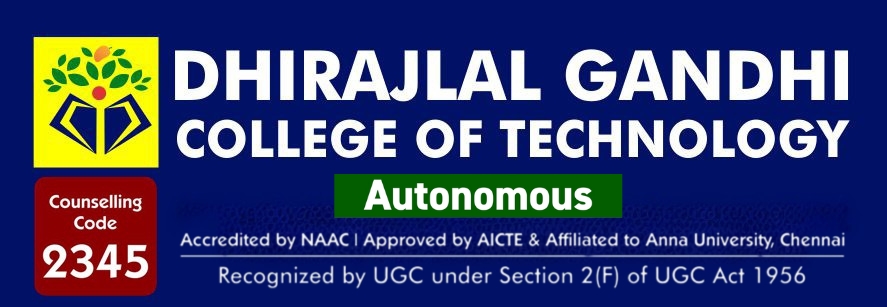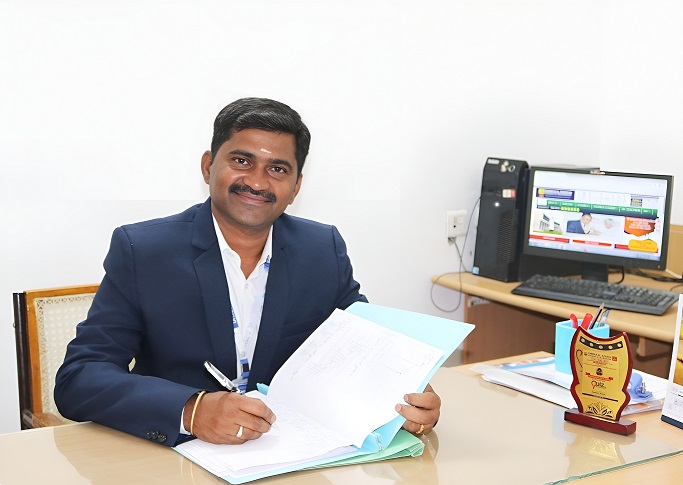
DHIRAJLAL Gandhi College of Technology (DGCT) is an educational institution that offers various undergraduate and postgraduate programs in engineering and technology fields. The college aims to provide quality education and promote research and innovation in the field of technology..
Bachelor of Engineering (B.E.) in Robotics and Automation is a specialized undergraduate degree program started in the year 2023. This focuses on the design, development, and implementation of robotics systems and automated technologies. This field combines principles from various disciplines such as mechanical engineering, electrical engineering, Artificial intelligence, computer science and control systems to create intelligent and autonomous systems capable of performing tasks in diverse environments. Students in this program learn about robotics hardware and software, control systems, sensors and actuators, artificial intelligence, machine learning, and industrial automation. Graduates of this program can pursue careers in industries such as manufacturing, automotive, aerospace, healthcare, and more, designing and deploying robotic and automated solutions to solve complex problems. R&A department provides foreign language training and placement training from day one to enhance the skill sets of students.
To develop technically proficient engineer in the field of Robotics and Automation engineering who can accept global need based challenges in changing technology and applications.

hod.robotics@dgct.ac.in
| S.No | Faculty Name | Designation |
1 |
Mr.T.Jayachandran, M.E.,(PhD)., |
Head of the Dept |
2 |
Dr.E.Arunkumar,M.Tech.,Ph.D., |
Asst Professor |
3 |
Mr.A. Aravindhan, M.E., |
Asst Professor |
4 |
Mrs.A.Vimal,M.E., |
Asst Professor |
5 |
Mrs.G.JAYA, M.Sc.,M.Phil, |
Asst Professor/Maths |
| S.No | Faculty Name | Designation |
1 |
Mr.S.Sujendhran,B.E., |
Secretrial Assistant |
Contact: +91 99427 09141
Email: hod.ra@dgct.ac.in